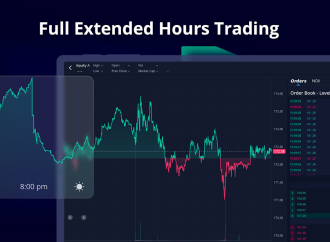Inflation has been on the rise in France and Spain, leading to concerns about how it will impact the European Central Bank’s (ECB) rate increases. While the ECB’s goal is to keep inflation near its 2 percent target, rising prices could spell trouble for the Eurozone economy. In this blog post, we’ll explore how the
Inflation has been on the rise in France and Spain, leading to concerns about how it will impact the European Central Bank’s (ECB) rate increases. While the ECB’s goal is to keep inflation near its 2 percent target, rising prices could spell trouble for the Eurozone economy. In this blog post, we’ll explore how the ECB rate increases could affect Europe’s economy, as well as what strategies policymakers should consider in order to manage inflation. We’ll also discuss the potential implications of rising prices on markets and businesses within Europe.
The European Central Bank’s monetary policy
The European Central Bank (ECB) is the central bank for the euro and administers monetary policy within the Eurozone, which comprises 19 member states of the European Union (EU) and is one of the largest monetary areas in the world. The ECB’s primary objective is to maintain price stability within the Eurozone.
In order to achieve its primary objective, the ECB sets interest rates and promotes financial stability within the Eurozone by providing liquidity to banks in need. The ECB also oversees banking supervision and regulates the money supply.
The ECB’s monetary policy decisions are made by the Governing Council, which consists of the six members of the Executive Board and the governors of the national central banks of all 19 member states. The Governing Council meets eight times per year.
The ECB uses a number of tools to implement monetary policy, including open market operations, reserve requirements, and collateral requirements. Open market operations involve buying or selling securities in order to influence short-term interest rates. Reserve requirements specify how much cash commercial banks must hold in reserve against deposits. Collateral requirements determine what assets can be used as collateral for loans from the ECB.
The current economic climate in Europe
The current economic climate in Europe is one of uncertainty. The European Central Bank (ECB) has raised interest rates twice this year, and is widely expected to do so again in December. This is in response to rising inflation in France and Spain, which could have a knock-on effect on the rest of the eurozone.
There are concerns that the ECB’s rate hikes could choke off economic growth, as higher borrowing costs start to bite. This would be particularly damaging for countries like Italy and Greece, which are already struggling with high levels of debt. There is also the risk that higher rates could cause another financial crisis, as banks begin to struggle with their repayments.
The situation is further complicated by Brexit. The UK’s decision to leave the EU has created a great deal of uncertainty for businesses and investors across Europe. With negotiations over Britain’s future relationship with the EU still ongoing, it is difficult to predict what the final outcome will be. In the meantime, companies are holding back on investment and hiring, which could have a negative impact on growth in the eurozone as a whole.
How rising inflation in France and Spain could impact the ECB’s decision making
Inflation in France and Spain is on the rise, which could impact the ECB’s decision making. If inflation continues to increase, the ECB may be forced to raise interest rates in order to keep prices under control. This could have a negative impact on Europe’s economy, as higher interest rates would make it more difficult for businesses to borrow money and invest in growth.
The potential implications of ECB rate increases on the European economy
In recent months, inflation in France and Spain has been on the rise, prompting the European Central Bank (ECB) to consider raising interest rates. While a rate increase would help to control inflation, it could also have negative implications for the European economy as a whole.
Higher interest rates would make it more expensive for businesses to borrow money, leading to slower economic growth. In addition, higher rates could cause the value of the euro to increase, making exports from Europe more expensive and further hurting economic growth.
The potential implications of ECB rate increases are significant and warrant careful consideration before any action is taken. The risks of raising rates too soon could outweigh the benefits of doing so, and lead to further economic problems down the road.
Conclusion
It is clear that rising inflation in France and Spain could have a significant impact on Europe’s economy. As the ECB adjusts its rates to respond to this increase, it is important for investors to be aware of the potential implications. Increased borrowing costs may lead to decreased growth, while increased savings rates may lead to increased investment activity. Although it can be difficult to predict exactly how these changes will affect the European economy as a whole, having an understanding of the relationship between interest rate increases and inflation should help investors make informed decisions with their money.





















Leave a Comment
Your email address will not be published. Required fields are marked with *